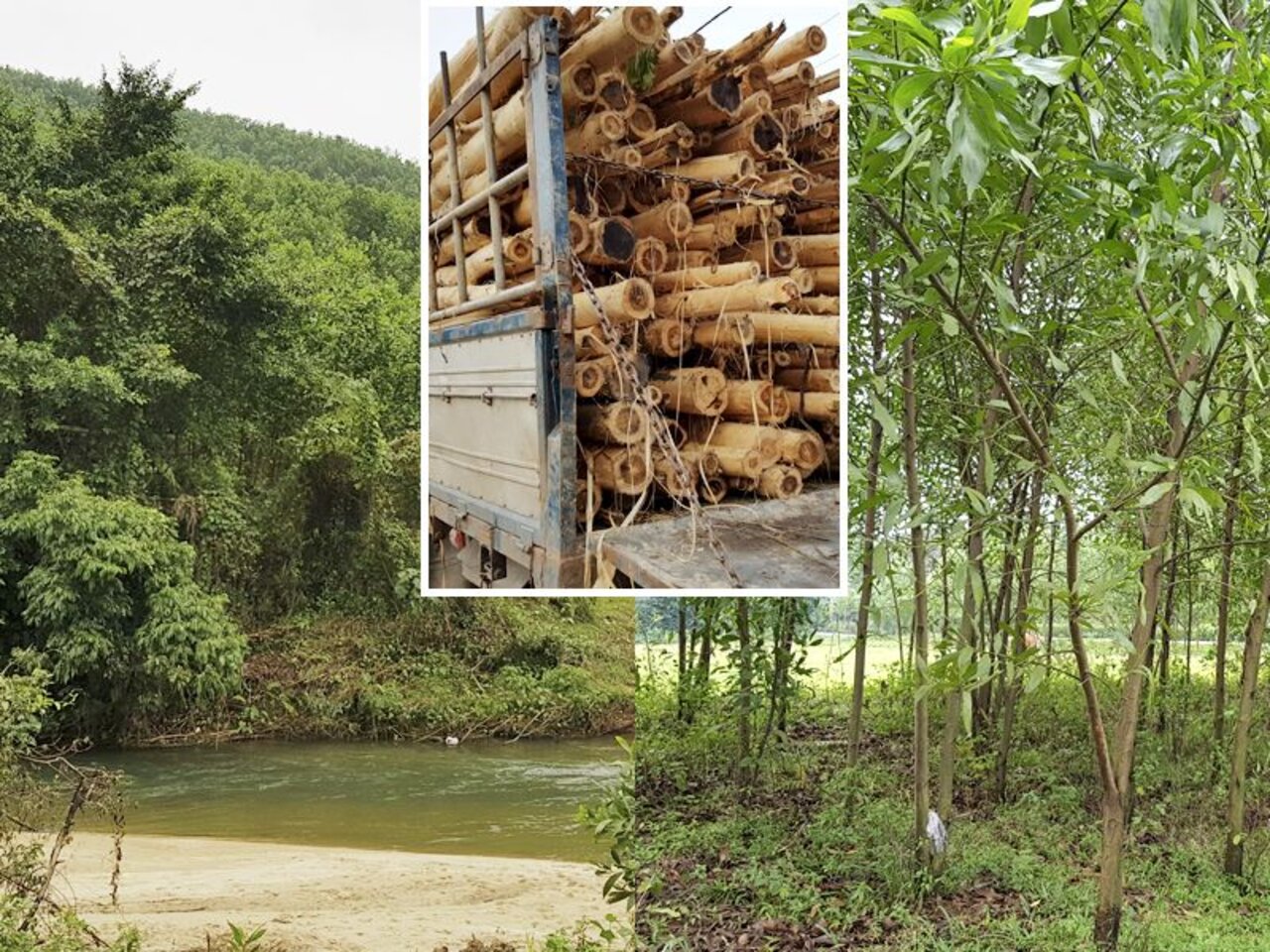Project
Contribution to close-to-nature private (small-scale) forest management and support to FLEGT/VPA process in Vietnam

Support to the implementation of the EU Action Plan for Forest Law Enforcement, Governance and Trade (FLEGT) through Voluntary Partnership Agreements (VPA)
Increasing rotation ages of Acacia mangium plantations in Vietnam: What are the implications for sustainable forest management and rural livelihoods?
Background and Objective
The project aims to contribute to an economically, socially, and ecologically sustainable management of private forest plantations in Vietnam and to support application of instruments to control timber imports and to achieve an effective utilization of timber. It focuses on the small-scale owners of acacia plantations of the provinces of Quang Tri, Quang Nam and Thua Thien Hue in Central Vietnam.
The project consists of scientific, capacity building and knowledge transfer activities. The Thünen Institute of International Forestry and Forest Economics is responsible for conducting research activities within the project which is jointly implemented together with, WWF and HessenForst. The main goal of the scientific component is to analyze factors that influence forest owners’ decisions to increase rotation periods of acacia plantations in order to produce higher quality timber, as well as understanding the incentives of forest owners to join forest owner associations. This in turn will help policy-makers to take informed decisions on future policy developments in the field of sustainable forest management.
Target Group
Small-scale acacia plantation owners in the provinces Quang Tri, Quang Nam and Thua Thien Hue, Central Vietnam.
Approach
Analytical techniques involve descriptive statistics and econometric household farm modelling based on own data collected in the study region (18 communes in the provinces of Quang Tri, Quang Nam and Thua Thien Hue).
Data and Methods
Our team collected primary household data using structured household interviews of 306 households and Focus Group Discussions. Household interviews covering a wide range of information starting from households’ socio-economic characteristics, tree plantation management and information on all other rural livelihood activities. Focus groups aimed mainly at understanding farmers’ incentives to join Forest Owners’ Associations, as well as their concerns regarding increased rotation periods of Acacia mangium plantations.
Our Research Questions
The main research questions asked within our research project are:
1) What are the factors that influence farmers‘ decision regarding the rotation period of Acacia mangium plantations?
2) What is the role of Forest Owners‘ Associations in promoting increased rotation period Acacia mangium plantations and production of quality timber?
3) What are the major determinants of joining Forest Owners‘ Associations?
Results
Our findings show that the adoption of long rotation periods is strongly influenced by land fragmentation and land size, road quality and by the remoteness of the village location. The reservations of farm households towards long rotation periods revealed through FGDs are related mainly to increased uncertainty and risk associated with long rotations, cash constraints due to longer waiting times for harvest, and limited knowledge on the practice, and market access.
Potential policy approaches that seek to promote the adoption of long rotation periods by small-scale acacia growers should include a package of measures that simultaneously address the constraints of smallholders and the number of risks that they face: Insurances can buffer storm risks, long-term credits and direct contracts between forest owners and wood industries can encounter cash constraints. Problems with fragmented ownerships of forest can be overcome when forest owners are supported to join forest owners‘ associations.
- Project brief 2020/01 (EN) Eliza Zhunusova
DOI:10.3220/PB1581515391000
Thünen-Contact

Involved external Thünen-Partners
-
World Wide Fund For Nature Deutschland
(Deutschland, Deutschland) -
Landesbetrieb Hessen-Forst
(Kassel, Deutschland) -
World Wide Fund For Nature - Greater Mekong, Vietnam
(Vietnam, Vietnam) -
Hue University of Agriculture and Forestry, Hue
(Hue, Vietnam) -
GFA Consulting Group GmbH, Berlin
(Berlin, Deutschland)
Funding Body
-
Federal Ministry of Food und Agriculture (BMEL)
(national, öffentlich)
Duration
12.2014 - 12.2018
More Information
Project status:
finished
List of Publications
- 0
Zhunusova E, Le Thi Hoa S, Schröder J-M, Ziegler S, Dieter M, Günter S (2020) Challenges related to smallholder participation in the production of sawlogs: The case of acacia plantations in Vietnam. Hamburg: Thünen Institute of International Forestry and Forest Economics, 1 p, Project Brief Thünen Inst 2020/01, DOI:10.3220/PB1581515391000
- 1
Zhunusova E, Le Thi Hoa S, Schröder J-M, Ziegler S, Dieter M, Günter S (2019) Smallholder decision-making on sawlog production: The case of acacia plantation owners in Central Vietnam. Forests 10(11):969, DOI:10.3390/f10110969





